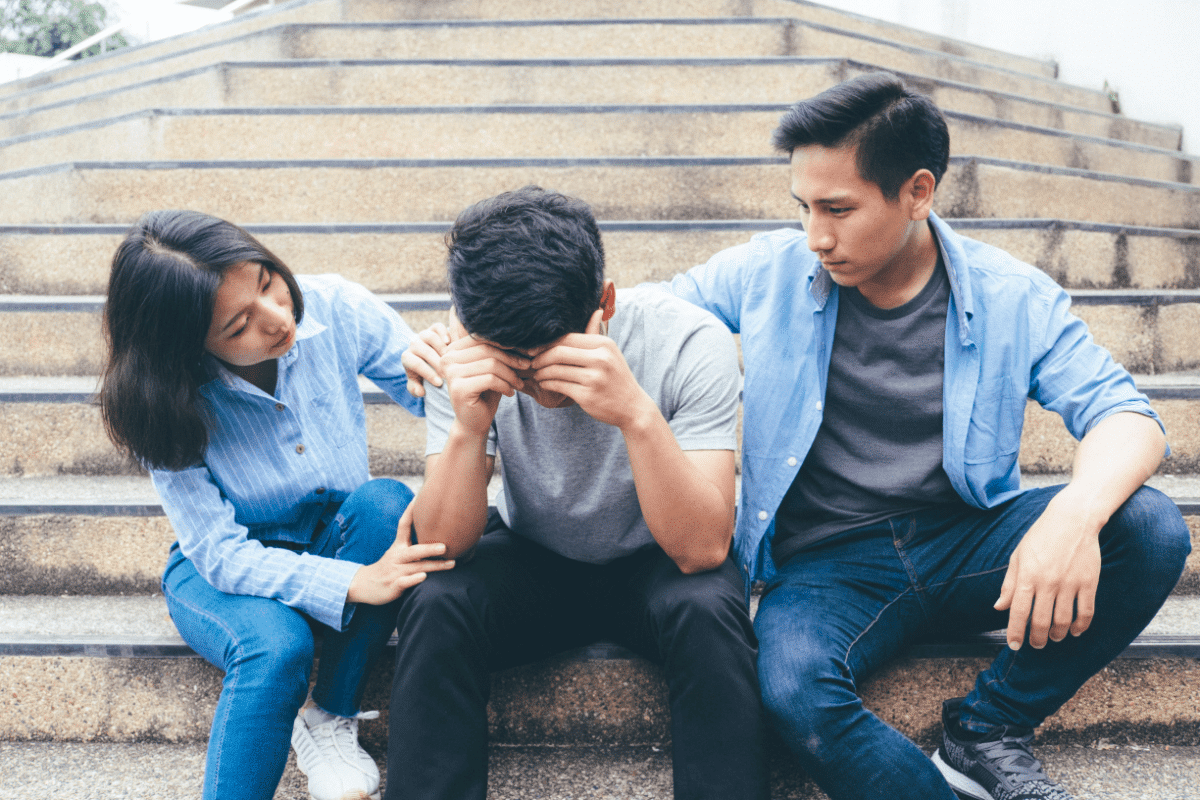
What is Social Media Addiction in Teenagers?
Social media addiction in teenagers is marked by the overuse of social media to the point where it interferes with a teen’s day-to-day life, responsibilities, and overall wellness. It typically involves spending hours on platforms such as Instagram, TikTok, or Snapchat.
As a result, teens may neglect schoolwork, sleep, and in-person interactions. Furthermore, those struggling with social media addiction often develop a need for consistent validation through likes, comments, and followers—which can have negative repercussions on their self-image and mental well-being.
Social media addiction in teens can have lasting effects, including increased feelings of anxiety, depression, and loneliness. Teens may have a difficult time dealing with FOMO (fear of missing out) and may frequently compare themselves to others—thus leading to a distorted sense of reality. Additionally, the addictive nature of social media algorithms can make it challenging for teens to disconnect, further worsening the issue.
Beachside Teen offers comprehensive mental health treatment for teens in California. Call us now at 888-254-0916.
Signs of Social Media Addiction in Teens
It is crucial that parents and caregivers are aware of the signs of social media addiction in teens. That way, they can help their teenager manage their problem swiftly and effectively. Signs of social media addiction in teens include the following:
- Excessive screen time
- Declining relationships
- Avoiding social events
- Sleep disruption
- Loss of interest in hobbies once enjoyed
- Reduced physical activity
- Anxiety over phone separation
- Smartphone dependence
- Emotional detachment
- Increased need for validation
- Declining academic performance
Causes of Social Media Addiction
Social media addiction in teens can stem from a combination of psychological, social, and neurological influences. One of the key drivers in the development of this addiction is the release of dopamine, a neurotransmitter linked to pleasure and motivation, which is triggered during interactions on social media. For many teens, the ongoing stimulation from social platforms can make it hard to engage with other activities, leading to dependency. Highlighted below are some of the main factors behind social media addiction in teenagers:
- Influencer Culture: The growing popularity of influencers sets unrealistic standards. This often leads teens into continuous comparison and consumption.
- Mental Health Difficulties: Teens may turn to social media as an unhealthy way of coping with mental health challenges such as anxiety, depression, or poor self-esteem.
- Sense of Community: For some, these platforms may provide a sense of belonging and connection. This can be especially validating for lonely teens.
- Dopamine Release: Engaging with content—such as likes, comments, and new posts—stimulates dopamine production, reinforcing the want to continue scrolling.
- Lack of Offline Connection: Teens who do not have strong face-to-face friendships may look to social media to fill the void. This can result in an overreliance on virtual interactions.
- Fear of Missing Out (FOMO): Teens often feel sad or anxious about missing out on social events and trends—causing them to remain online frequently.
- Escaping Real-life Stress: Social media can offer a temporary escape from real-life situations. These can include academic pressures, family dysfunction, or conflicts with peers.
- Validation and Self-worth: Some teenagers may feel reliant on social media as a way to build their self-esteem.
- Peer Pressure: Teens are notorious for wanting to fit in. They may spend excessive time on social media staying up to date on trends and challenges.
- Instant Gratification: The immediate attention of likes, shares, and comments results in a cycle of instant gratification. This can make it more difficult for teens to focus on long-term goals.
How to Help Teens with Social Media Addiction
Helping teens overcome social media addiction involves a multi-faceted approach that centers on re-establishing balance and encouraging healthier habits. While it may not be easy, breaking free from this addiction is possible with the right strategies and support. Ways to help teens manage their social media use in a healthy manner include:
- Limit Screen Time: A good first step is to reduce the overall time spent on social media. This involves setting and upholding limits on screen time. That way, teens can reclaim control over their lives and minimize the effects of social media.
- Encourage Offline Activities: By redirecting attention to more constructive activities, teens can help restore balance in their lives. These activities may include exercise, hobbies, and spending time with loved ones. Ultimately, this helps to cultivate a sense of fulfillment outside of social media use.
- Foster Real-Life Connections: Help your teen strengthen their relationships with family and friends by encouraging in-person interactions. Building strong, face-to-face connections can help them minimize the need for online engagement.
- Seek Professional Help: If your teen’s social media addiction may be associated with mental health concerns such as anxiety or depression, it is vital to consult with a professional. They can help provide your teen with the necessary tools and support to effectively manage social media use and improve mental well-being.
Find Mental Health Treatment for Your Teen Today in California
When teens show signs of social media addiction, it can be very concerning for parents and caregivers. At Beachside Teen, we collaborate closely with teens and their parents to help them work through behavioral issues and mental health challenges so that they can improve their overall quality of life.
Our goal is to help them make meaningful connections and lasting improvements so that they can find ultimate success. To learn more about our services, give us a call or visit our admissions page today.




